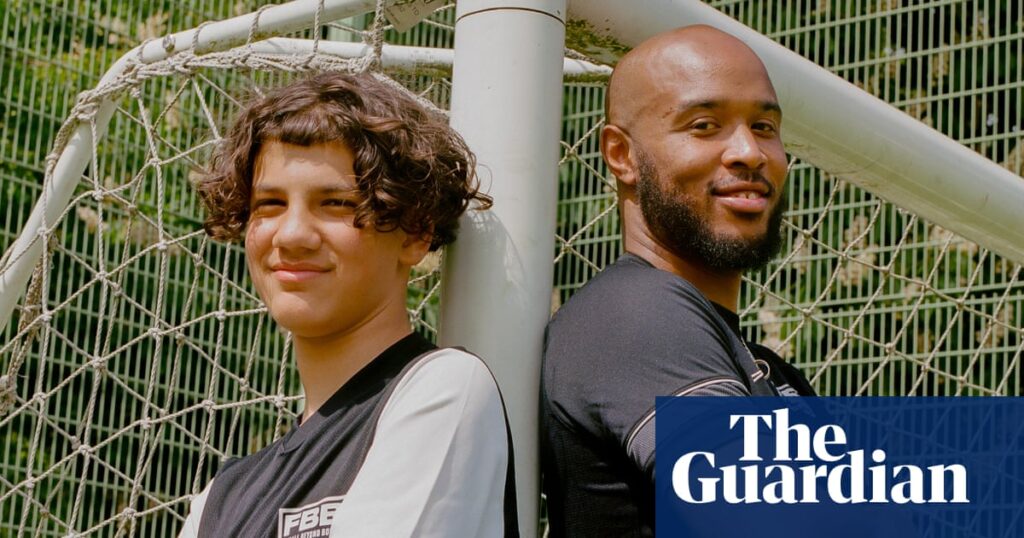Paul Barber, the Brighton chief executive, is in charge of a football club widely admired for its excellent management and shrewd way of operating, but his life could have ended up in a very different place. When he was 13 years old, Barber experienced what he describes as a “seismic shock” after his father left home suddenly and never returned. Barber did not see his father again for 45 years, until the day before his death.
“I’d gone from this well-balanced, well-adjusted kid doing OK at school, doing everything else OK, to one that was playing truant, being disruptive, disengaging from friends, disengaging from football, disengaging from any relationship with my teachers and suddenly my whole life seemed to be out of control,” he says.
Barber was fortunate that his teachers noticed the dramatic change in his attitude and behaviour. His headmaster and the head of PE, who was also his football coach, addressed the issues in a positive and supportive manner. “They used the carrot and stick approach, as in: if you don’t listen and if you don’t behave, you’re not going to play football and football for me was everything.”
Crucially, the teachers were neither judgemental nor intent on punishing him and, even though he did veer off the rails a few other times, he eventually steered himself away from the path he had been heading down. “I know from my own experience how crucial having a reliable mentor when you’re young can be,” Barber says.
On the back of his own personal experience, Barber is leading the Lost Boys Taskforce initiative. Launched in July, it aims to help young people, mainly boys, who do not have access to a role model outside their family. More than 630,000 young people in England – nearly one in five teenagers – say they don’t have a trusted adult they can turn to when life gets tough.
The taskforce wants to change that. Their aim is for every young person in the country to have a trusted adult by 2035. These role models – who are chosen by the young person – are safe figures who listen without judgement, agenda or expectation, but with the sole purpose of supporting and encouraging positivity within the young person’s life.
There is substantial and compelling academic research behind the idea. Boys with role models have improved mental health, improved academic attainment, reduced isolation, loneliness, radicalisation and misogyny, and – crucially for the government – they lead to wellbeing savings for the public purse.
The first objective for the taskforce is to train 10,000 mentors, which will cost £5m – half of which they will raise, with the other half matched by the government. These role models – who are likely to be working either in education or sport – will be trained to provide emotional, social and academic support to boys who are struggling with truancy, mental health problems or social isolation.
It sounds like a big ask for the mentors but part of the training is making them aware of the other help that is available. “You can’t be an expert in all these areas but there will be people who are,” says Barber. “So part of it is recognising that, when someone needs a particular type of expert support, the trusted adult probably won’t be qualified to give, but will have the awareness to pass on and hand over.”
Barber wants football to open up its network to reach these young people and, with 160,000 volunteer coaches across grassroots clubs in England, there are already the foundations to do so. Mark Bullingham, the CEO of the FA, who is also involved in the taskforce, says: “We know that coaches can be part of the solution and are looking at how we can add relevant elements to our coaching courses to help promote this.”
Having done the research, made a plan and worked out the costs, the taskforce is now trying to secure £2.5m in funding from the government. They are hosting events throughout party conference season, with Alastair Campbell, former head of communications to Tony Blair, at the forefront of lobbying.
“Our main objective is to have the issue acknowledged by a broad spectrum of those in power across all parties,” Campbell says. “You’re talking in the first instance about a small number of millions which, in the context of government spending, is a drop in the ocean but right now even the drops in the ocean are quite precious, so that’s why we have to win the public argument and then win the political argument that this is a real need.”
The taskforce’s aim is to ensure “every young person has access to a trusted adult outside their family home”, but Campbell is aware they need to convince those in power that the plan works. “Let’s deliberately start small. Let’s not try to save the world; it’s a part of something but could become significant given time.”
“Even if you help a small number of people it still has an impact,” adds Barber. “So, even if we can reduce that figure by 10% it will not only help those 63,000 people and their families but it will also give a boost to everyone involved.” Barber stresses that many of these young people are wary of “do-gooders” but it helps that his background is one that kids can identify with. “One of them said to me the other day: ‘You’re authentic, you are.’ I said ‘what do you mean by that?’ and he said: ‘Well, you work in football, so that’s cool. You give your time for the charity; that’s good. And your story is as shit as mine.’” Just as Barber managed to turn his life around, the hope is that many others will follow his lead.
This is an article by Richard Foster, the writer behind The Football Mine and host of the podcast It Started With A Kick.

